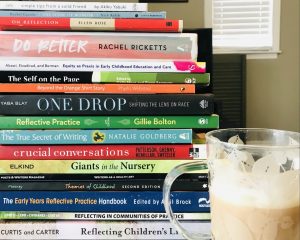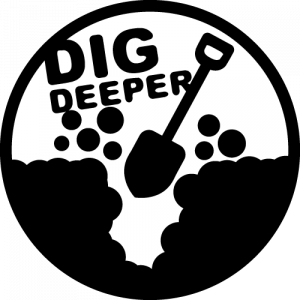2.2 What is Reflective Practice?

“Reflective practice is the ability to reflect on one’s actions so as to engage in a process of continuous learning” – Donald Schön
Why Reflective Practice?
We all undertake activities to think about our experiences, learn from them and develop a plan for what we will do or continue to do. Can you think of a time when you came home at the end of a week where everything had gone wrong? Or maybe when everything had gone well? What are your next steps? Are you able to answer the question “why am I doing what I am doing?” In order to continue to develop a reflective practice within our workplace with colleagues, children and families we need to examine and understand the reasons for our reactions, our feelings and our interactions with others, which in turn leads us to becoming a reflective practitioner.
Reflective practice is something which has developed across many disciplines such as teaching, to learn from our experiences. There was a time when reflective practice would have been considered an optional skill or a desired disposition but over the past few years, reflective practice is no longer considered an optional skill but a required disposition.
Reflective Practice has been defined by many including Bolton (2014), Moon (2001), Rodgers (2002) and Schön (1983). Reflective Practice is a systematic rigorous self-directed meaning-making process where a person moves from one experience to another through the development of insights and practice with the intention of coming to a deeper understanding of one‘s personal values and intellectual growth. Schön (1983) suggests that, in practice, reflection often begins when a routine response produces a surprise or an unexpected outcome. The surprise gets our attention, which may begin a process of reflection. Reflective practice is “a dialogue of thinking and doing through which one becomes more skillful” (Schön, 1983, p. 56).
Reflective Practice according to the College of Early Childhood Educators of Ontario
An approach used by educators to analyze and think critically about their professional practice with the intention to better understand and improve their practice. Reflective practice is thoughtful, action-oriented and often, a collaborative effort. Educators use reflective practice to plan, evaluate their strengths and challenges, make decisions and create change, if necessary. Self-reflection, critical reflection and collaborative inquiry are all important elements of reflective practice (College of ECE, 2017).
Although a definition of reflective practice has been included this is only one part of the reflective process. Reflection is a very personal skill or disposition and different people will define it in different ways. It is important to remember that there is no one ‘correct’ way of defining what reflection is or how it should be done as a lot of this will depend on your own personal circumstances and work environment. For this reason this resource will explore elements of reflective practice that will help the practitioner develop their own practice. In describing reflective practice, I have interchangeably referred to it as a skill and/or a disposition. This is related to the current literature and discourse that suggests reflection is not a natural skill but rather a way of being or disposition. It involves an evaluation of our ethics, values and feelings around experiences. We will explore this idea later in Chapter 6.
Dig Deeper
For more information on this topic check out the resource links below.
- Reflective Practice and Self-Directed Learning by the College of Early Childhood Educators
- Getting started with Reflective Practice by Cambridge International Education
Teaching and Learning Team - Research Article Revisiting reflective practice in an era of teacher education reform: A self-study of an early childhood teacher education program by Sophia Han, Jolyn Blank and Ilene R. Berson.
- The Ontario Ministry of Education. (2013). Capacity Building Series: Culturally Responsive Pedagogy
Learning to teach: becoming a reflective practitioner by The Open University is licensed under the Creative Commons Attribution-NonCommercial-ShareAlike 4.0 International Licence.

